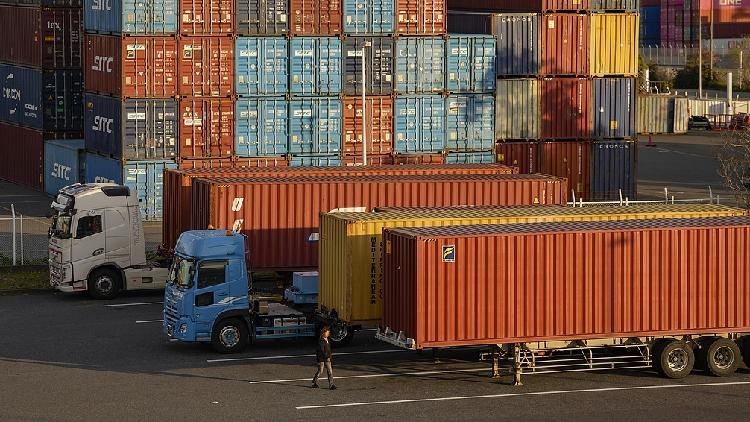Trump enters Japan trade discussions, prompting economic concerns
President Donald Trump highlighted "big progress" in tariff negotiations with Japan on Wednesday during one of the first in-person meetings following his imposition of tariffs on worldwide imports, which have unsettled markets and raised concerns...

Japan had not anticipated Trump’s direct involvement in Wednesday's discussions, thinking of them primarily as a preliminary fact-finding mission. This suggests that Trump desires to maintain close oversight over negotiations with the many countries expected to engage in talks in the coming days and weeks.
Tokyo aimed to restrict the discussions to trade and investment issues. However, Trump indicated early on Wednesday that contentious matters, such as Japan's financial contribution to hosting U.S. troops, would be part of the dialogue.
"A Great Honor to have just met with the Japanese Delegation on Trade. Big Progress!" Trump declared in a social media post, which did not provide specifics about the discussions.
Opposite Trump was Ryosei Akazawa, a close advisor to Japanese Prime Minister Shigeru Ishiba, who holds the relatively junior cabinet position of economic revitalization minister.
After the discussions, Akazawa shared limited information but noted that the two sides had agreed to reconvene later this month, and Trump had indicated that securing a deal with Japan was a "top priority." He mentioned that exchange rates, which the Trump administration has accused Japan and others of manipulating to gain a trade advantage, were not discussed.
Following Akazawa's comments, the dollar strengthened against the yen, increasing by roughly 0.5 percent for the day. Tokyo has consistently denied any manipulation of the yen to lower export costs.
Akazawa's meeting with Trump lasted about 50 minutes, after which he participated in another session lasting nearly an hour and a half with Treasury Secretary Scott Bessent, Commerce Secretary Howard Lutnick, and Trade Representative Jamieson Greer, according to Japanese reports.
Japan's prime minister, who previously stated he would not rush to finalize a deal and has no intention of making significant concessions, adopted a more cautious stance when speaking to reporters later in Tokyo.
"Of course, the negotiations will not be easy going forward, but President Trump has stated that he wants to give top priority to the talks with Japan," Ishiba remarked.
Finance Minister Katsunobu Kato expressed "deep concerns" on Thursday about the global economic implications of Trump's trade tariffs, marking the government's strongest warning as the two nations commenced trade discussions.
In an interview with Reuters in Tokyo shortly after the discussions commenced in Washington, Kato voiced apprehension about the recent market volatility sparked by Trump's tariff announcements, noting that it could potentially hinder Japan's economic recovery.
"The recent U.S. tariff measures affect various industries and heighten uncertainty. We're deeply concerned they could affect Japan's economy, as well as the global economy, through various routes such as trade and financial markets," Kato commented. He is scheduled to travel to Washington next week for meetings with the International Monetary Fund and the Group of 20.
Kato is also anticipated to meet separately with Bessent to further the talks initiated by Akazawa, which Trump unexpectedly joined.
"There's a risk of exerting downward pressure on Japan's economy," Kato stated, referring to the U.S. tariffs and the resulting market volatility. This was his first media interview following Trump's announcement of "reciprocal" tariffs on numerous countries on April 2.
Kato emphasized the importance of maintaining open lines of communication with the U.S. regarding currency matters, noting that both Tokyo and Washington have long concurred that excessive volatility and erratic currency movements are undesirable.
"It's important for currency rates to move stably, reflecting fundamentals. There's no change to the government's concern over currency market developments, including speculative moves," he added. "We need to scrutinize how the U.S. tariff measures affect financial market movements, including currency rates."
James del Carmen for TROIB News
Find more stories on Business, Economy and Finance in TROIB business












